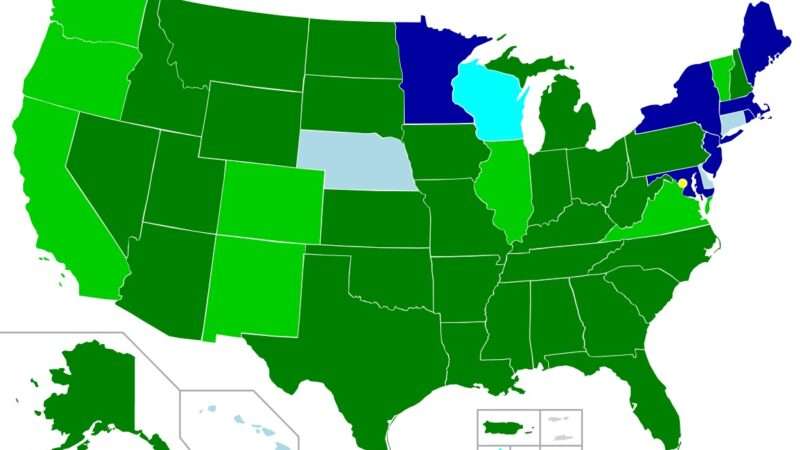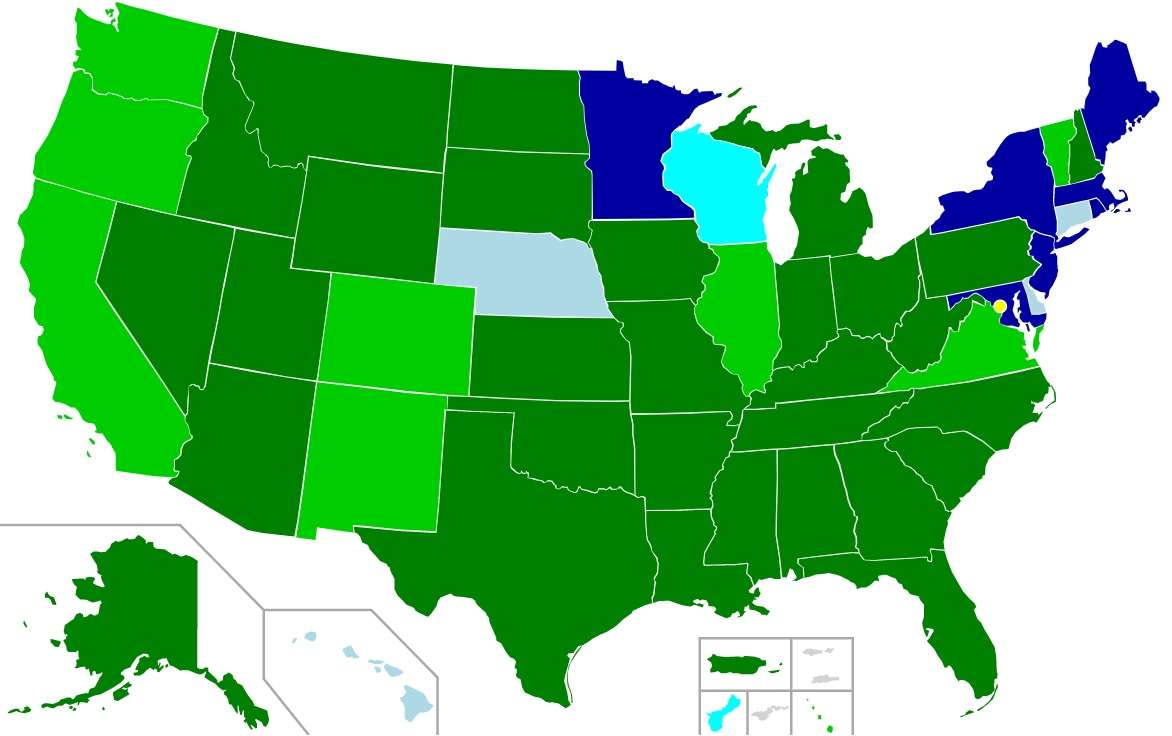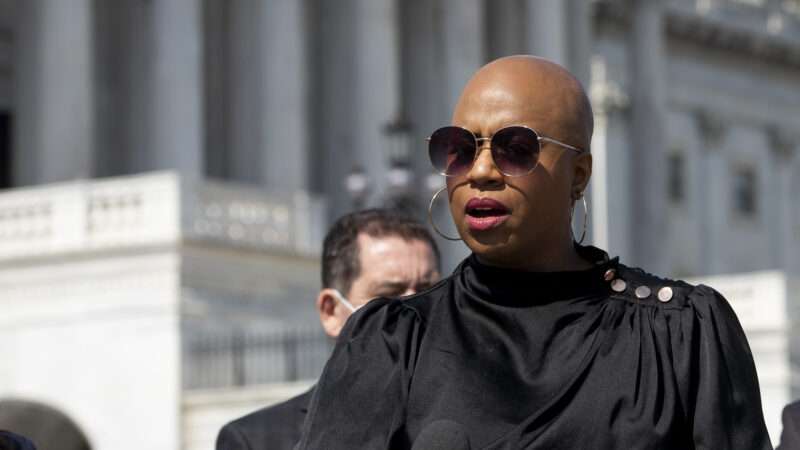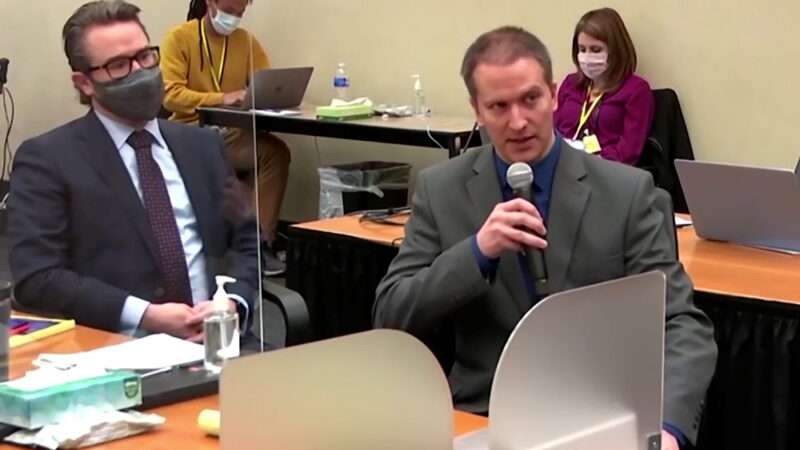Authored by Zachary Stieber via The Epoch Times,
Officials in Oregon are considering making masking and social distancing requirements permanent.

The requirements, first introduced last year in an attempt to slow the spread of the virus that causes COVID-19, are set to expire on May 4.
Oregon’s Occupational Safety and Health Division (OSHA) is proposing rules with no end date that would require a mask or other face covering for any person entering a business or a housing facility provided by employers. The rules would also require physical distancing, or the maintaining of distance between people.
“As the Governor’s Executive Order is set to expire, the public health emergency remains a substantial concern in Oregon. As a result, it is necessary to extend the provisions from the Executive Order with a permanent rule. The unique exposures created in the labor housing environment, particularly in working situations requiring large numbers of workers, make these rules necessary to reduce risk to individual workers,” the division said in a summary of one of the proposed rules.
The office said the masking rule for businesses will likely be repealed “once it is no longer necessary to address the COVID-19 pandemic.”
During the public comment period on the proposals, OSHA received a record number of public comments, mostly critical, and nearly 60,000 residents signed a petition against them.
The petition’s author, Jack Dresser, said that an unelected public agency should not be allowed “‘indefinite’ authority over any facet of public life.”
“These rules would continue to impose intrusive, burdensome, and unnecessary reach of government into Oregon businesses, their employees, customer and client privacy, and customer freedoms to conduct commerce without government interference,” he wrote.
Opponents also are upset government officials won’t say how low Oregon’s COVID-19 case numbers must go, or how many people would have to be vaccinated, to get the requirements lifted in a state that’s already had some of the nation’s strictest safety measures.
“When will masks be unnecessary? What scientific studies do these mandates rely on, particularly now that the vaccine is days away from being available to everyone?” said state Sen. Kim Thatcher, a Republican from Keizer, near the state’s capital.
“Businesses have had to play ‘mask cop’ for the better part of a year now. They deserve some certainty on when they will no longer be threatened with fines.”
Michael Wood, administrator of Oregon’s OSHA, said that he is reviewing all the feedback to see if changes are needed before he makes a final decision by May 4, when the current rules lapse.

Residents wearing masks sit in downtown Lake Oswego, Ore., on April 11, 2021. (Gillian Flaccus/AP Photo)
Oregon, a blue state, has been among those with the country’s most stringent COVID-19 restrictions and now stands in contrast with much of the rest of the nation as vaccines become more widely available.
At least six states—Alabama, Iowa, Mississippi, Montana, North Dakota, and Texas—have lifted mask mandates, and some never implemented them. In Texas, businesses reopened at 100 percent capacity last month.
“Make no mistake, COVID-19 has not disappeared, but it is clear from the recoveries, vaccinations, reduced hospitalizations, and safe practices that Texans are using that state mandates are no longer needed,” Texas Gov. Greg Abbott announced last month.
A number of top public health officials, such as Dr. Anthony Fauci, decried the move, but it did not lead to a surge in COVID-19 cases that some had predicted. Fauci later said he found that fact “confusing.”
Oregon has seen its daily new cases of the disease drop from a peak of over 2,000 in December of last year to several hundred in March. The daily cases have been climbing this month, reaching a recent-high of 888 on April 17.
Some 199 COVID-19 patients were hospitalized as of April 16, with 15 other patients suspected to have the disease, according to state data. Over 5,000 hospital beds were available in the state.
Under Oregon’s temporary rules, 11 businesses in the state have been fined for violations. Last week, two Black Bear Diner sites, one in Bend and one in Redmond, were fined more than $35,000 for “willfully allowing indoor dining” despite officials designating Deschutes County an “extreme risk” for transmission of the virus.
Besides mask and distancing requirements, Oregon’s permanent proposals include workplace rules regarding air flow, ventilation, employee notification in case of an outbreak, and sanitation protocols.

Oregon Gov. Kate Brown speaks to the press in Roseburg, Ore., on Oct. 2, 2015. (Scott Olson/Getty Images)
The proposals dovetail with separate actions issued by Democratic Gov. Kate Brown, using a state of emergency declaration, requiring masks in public statewide—and even outside when six feet (1.83 meters) of distance can’t be maintained—and providing strict, county-by-county thresholds for business closures or reductions in capacity when case numbers rise above certain levels.
More than a third of Oregon’s counties are currently limited to indoor social gatherings of six people, and the maximum occupancy for indoor dining, indoor entertainment, and gyms is 25 percent capacity or 50 people, whichever is less. And many schools are just now reopening after a year of online learning.
The workplace rule is “driven by the pandemic, and it will be repealed,” Wood said.
“But it might not need to go away at exactly the same time the State of Emergency is lifted,” he said, referring to Brown’s executive orders.
Amid pandemic frustration and deprivation, the issue has gained a lot of attention. More than 5,000 public comments were sent to the agency, smashing its previous record of 1,100.
“The majority of comments were simply hostile to the entire notion of COVID-19 restrictions,” Wood said.
“The vast majority of comments were in the context of, ‘You never needed to do anything.’”
Justin Spaulding, a doctor at the Cataract & Laser Institute of Southern Oregon, is among those who raised concerns about the proposal in public comments.
“I do not understand these new guidelines for business. If we put these into effect we will only continue to blunt the recent drop in business,” he wrote. “We have a large subset of patients that are unwilling [or] hostile with the current guidelines, and making them permanent will only make it worse.”









 The seemingly casual way that Chauvin pinned Floyd to the ground as he died became an iconic image and a rallying cry for policing reform, particularly in the way officers interact with black people. Protests led to hundreds of proposed policing reforms across the country.
The seemingly casual way that Chauvin pinned Floyd to the ground as he died became an iconic image and a rallying cry for policing reform, particularly in the way officers interact with black people. Protests led to hundreds of proposed policing reforms across the country.